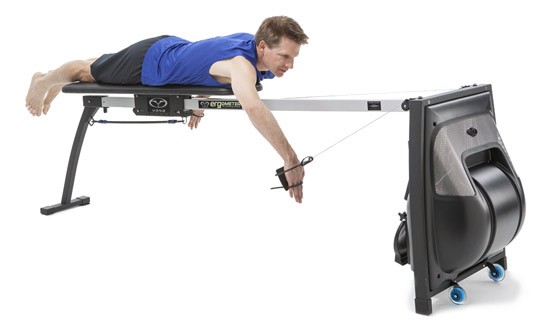As mentioned in graduated exercise, training during rehabilitation is vital to help counteract reversibility. Reversibility affects each component of fitness and each must be trained in order to ensure a safe return to play for the athlete.
Training during rehabilitation
During rehabilitation training can be done to help slow down and limit the loss of fitness. While the injury requires rest, this rest does not always have to be to the entire body. A knee reconstruction only requires that one (1) leg to be rested, and a shoulder dislocation requires only that arm to be rested. The rest of the body can still train to help prevent reversibility. Often athletes will train using their non-injured side or using their non-injured limbs (such as the arms for an injured ankle or the legs for an injured wrist).
Training after rehabilitation
Once an athlete has completed their rehabilitation, they still require training before they can return to play. The athlete may have regained muscular strength, muscular endurance, speed, power, flexibility, and have a full active range of motion, but they have not fully participated in their sport yet.
This lack of engagement in their sport means the sport specific components of fitness, such as coordination, and agility have not recovered. Furthermore, the athlete will have lost their ability to “read the game”, and may not be psychological prepared, or confident to return to play. These are regained through training and competition simulation.
Training after rehabilitation aims to:
- develop sport specific fitness components
- develop sport specific skills
- increase confidence
- safely return the athlete to play
Once the athlete is pain free and performing at pre-injury levels (not just meeting pre injury test), performance should be assessed with objective and subjective performance measures to determine readiness to return to full competition. The athlete should exhibit (if they had it before) the characteristics of skilled performers (kinaesthetic sense, anticipation, consistency, technique).

